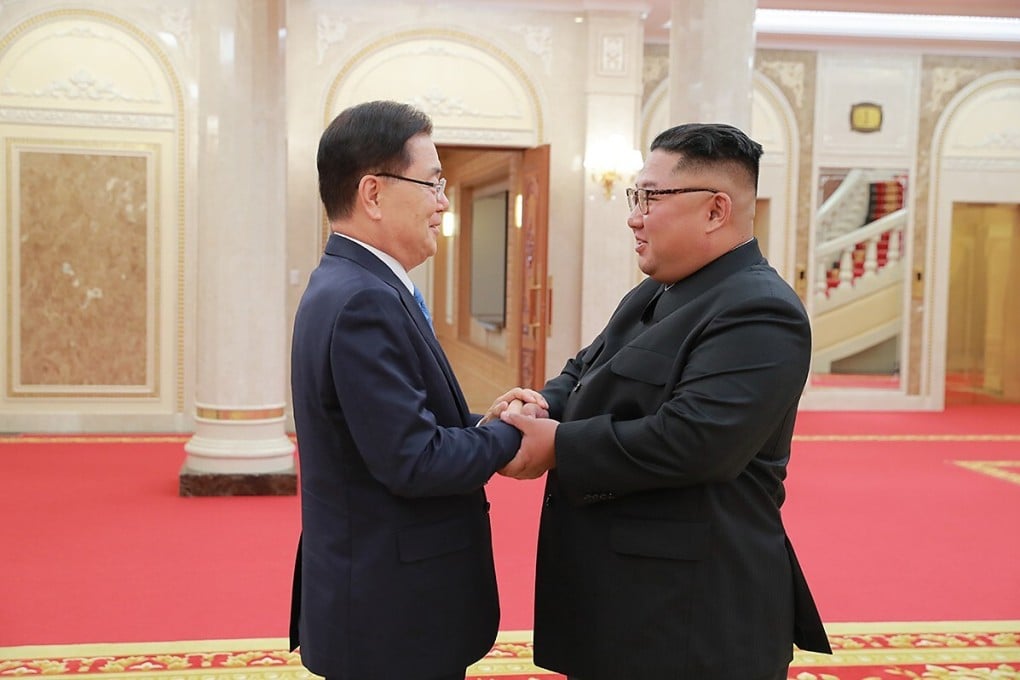South Korea’s Moon names new foreign minister as he looks to revive stalled peace talks with Pyongyang
- Chung Eui-yong, who played a key role in realising the first summit between Trump and Kim, will replace Kang Kyung-hwa – the South’s first female foreign minister
- The reshuffle leaves the president with just two women in his cabinet, as he pushes for closer ties with the North and denuclearisation during his final year in office

“I will do my utmost so that the foreign policy pursued by the Moon Jae-in government can bear fruit and the Korean peninsula peace process can take root,” Chung said in a press statement.
The reshuffle will see Kang, who held three key roles in the United Nations, and two other female ministers replaced by men, leaving only two women among Moon’s 19 government ministers, including the prime minister. The president had earlier promised to fill 30 per cent of his ministerial posts with women.

Chung’s nomination, and its timing, is also seen as reflecting Moon’s push to resume denuclearisation talks between Washington and Pyongyang.
“His appointment means President Moon will push through with his peace process for the Korean peninsula with added intensity in his final year in office, in cooperation with the Biden administration as well as neighbouring countries such as China and Japan,” said professor Yang Moo-jin of the University of North Korean Studies in Seoul.